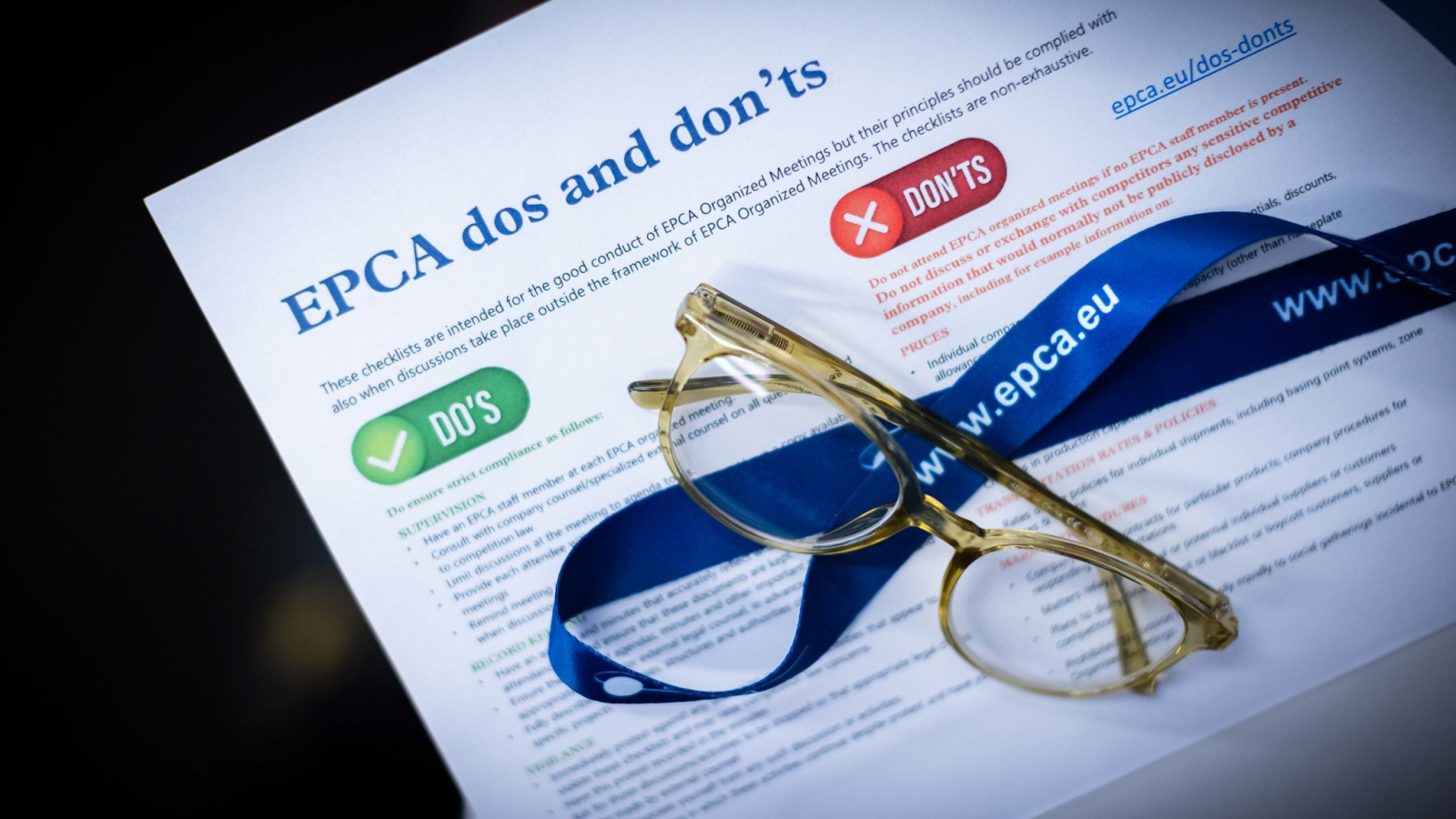These checklists are intended for the good conduct of EPCA organised meetings but their principles should be complied with also when discussions take place outside the framework of EPCA organised meetings. The checklists are non-exhaustive.
Should you have specific questions, contact EPCA or a specialised lawyer.
Operation within national and European competition laws ensure strict performance in the areas of:
Do ensure strict compliance as follows:
SUPERVISION
- Have an EPCA staff member at each EPCA organized meeting.
- Consult with company counsel/specialized external counsel on all questions related to competition law.
- Limit discussions at the meeting to agenda topics.
- Provide each attendee with a copy of these checklists and have a copy available at all meetings
- Remind meeting participants of the importance of competition law compliance, also when discussions may continue or occur outside meetings.
RECORD KEEPING
- Have an agenda and minutes that accurately reflect what is discussed, as well as an attendance list, and ensure that these documents are kept.
- Ensure the review of agendas, minutes and other important documents by appropriate staff and/or external legal counsel, in advance of distribution.
- Fully describe the purposes, structures and authorities of the groups, meetings and specific projects.
VIGILANCE
- Immediately protest against any discussion or meeting activities which appear to violate these checklists and may raise competition law concerns.
- Have this protest recorded in the minutes
- Ask for those discussions/activities to be stopped so that appropriate legal checks can be made by external counsel
- Actively dissociate yourself from any such discussion or activities.
- Leave any meeting in which these activities continue despite protest and have your departure minuted.
Do not attend EPCA organized meetings if no EPCA staff member is present. Do not discuss or exchange with competitors any sensitive competitive information that would normally not be publicly disclosed by a company, including for example information on:
PRICES
- Individual company/industry prices, price changes, price differentials, discounts, allowances & credit terms
- Individual company data on costs, production, capacity (other than nameplate capacities), inventories & sales
PRODUCTION
- Plans/strategy of individual companies concerning the design, production, distribution or marketing of particular products, including proposed territories of customers
- Changes in production capacities (other than nameplate capacities) or inventories
TRANSPORTATION RATES & POLICIES
- Rates or rate policies for individual shipments, including basing point systems, zone prices & freight
MARKET PROCEDURES
- Company bids on contracts for particular products; company procedures for responding to bid invitations
- Matters relating to actual or potential individual suppliers or customers
- Plans to discriminate against or blacklist or boycott customers, suppliers or competitors
- Prohibited discussion topics apply equally to social gatherings incidental to EPCA Organized Meetings.
